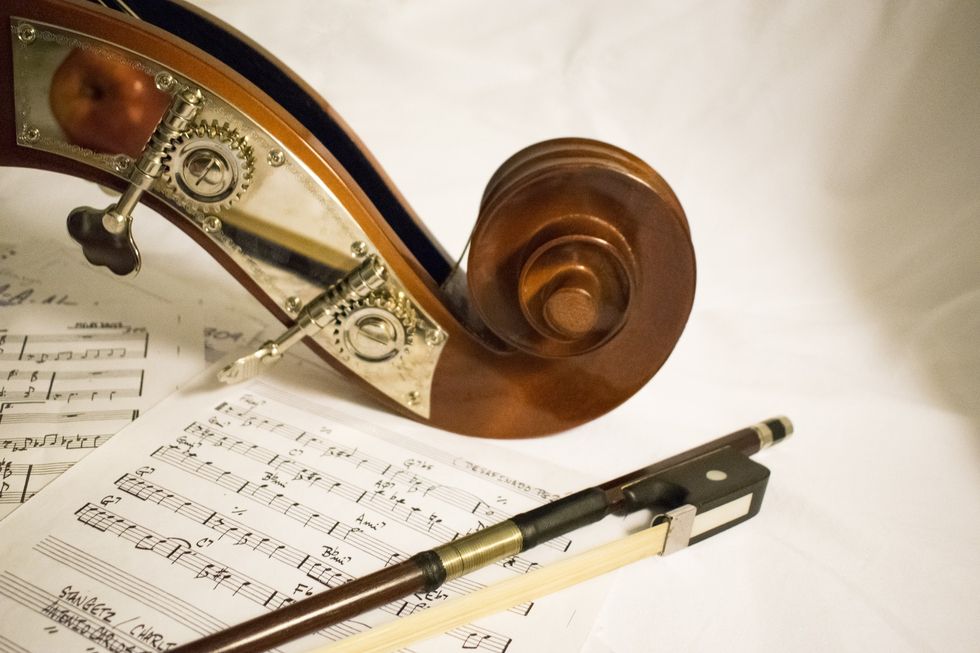Practicing can be rough, I can admit to that. Yet I have picked up on my own tips and tricks to help me be more productive within my allotted amount of practice time. Hopefully, these nine tips will help your practicing time become more efficient and for you to become an all-around better musician.
1. Warm up
Without warming up your instrument, you're setting yourself up for failure in the future. Your instrument needs the proper time to settle and get ready for a productive practice session. Not warming up can start a path to a broken instrument. Also, unless you are constantly practicing your breath flow and the way your fingers move even without the instrument, your body isn't ready to dive straight into a practice session.
2. Set your limit
Not everyone can practice for long periods of time, and that's okay. You still need to get the most practicing possible done throughout the day, even if that means you have to complete half-hour chunks at a time. Once those 30 minutes are up, move on to another subject and then come back. It doesn't always have to be the same amount of time. Switch it up to the point where you are comfortable with your practicing.
3. Test your tempo
It's good to start slow to make sure you have a technical section up to speed. When it's an even harder section, it's better to have the section past tempo, that way it is easier to bring it down. You can't be stressed about the music if you have it better than it needs to be.
4. Take action
You can't improve if you don't start practicing and start making those practice sessions more productive. Your improvement relies 100% on yourself, no one else can improve you. Others can aid to your improvement, but you are the only one who can actually do it.
5. Record yourself
When playing a piece, you can't always get the full effect as you're playing. If you record yourself and then play it back, you will be more able to hear the errors in your playing. It is easier to see where there is room for improvement compared to the trouble spots that you know exists.
6. Use a mirror
Technique comes all from you as a musician. When watching yourself play slowly in the mirror, you are able to see how your fingers move and whether your embouchure stays in place. Throughout your practice session it is easy to revert back to improper playing habits. Going through slow warm-ups it is easier to watch your embouchure and fingers as you play.
7. Analyze the music
Nothing can prepare you for that key change more than analyzing the music ahead of time. That way you know what is ahead. Those accidentals that were a few measures ahead, you won't miss now that you have actually deeply looked at the music.
8. Practice with a clear head
It is never a good idea to go into your practice session with an unstable mindset. With thoughts running through your head constantly that aren't the best, it will pass on to your practice session. When you are well rested, and mentally prepared to practice, you will be productive and enjoy your time so much more.
9. Practice journal
Keep a journal. Keep a journal of whatever you want. It could be as simple as how long you have practiced for every day, or it could be all of your goals for the practice session and how much you accomplished within that amount of time. Keeping track of what you accomplish helps you see how much you improve every time you pick up your instrument.




















 sunrise
StableDiffusion
sunrise
StableDiffusion
 bonfire friends
StableDiffusion
bonfire friends
StableDiffusion
 sadness
StableDiffusion
sadness
StableDiffusion

 purple skies
StableDiffusion
purple skies
StableDiffusion

 true love
StableDiffusion
true love
StableDiffusion
 My Cheerleader
StableDiffusion
My Cheerleader
StableDiffusion
 womans transformation to happiness and love
StableDiffusion
womans transformation to happiness and love
StableDiffusion
 future life together of adventures
StableDiffusion
future life together of adventures
StableDiffusion





















